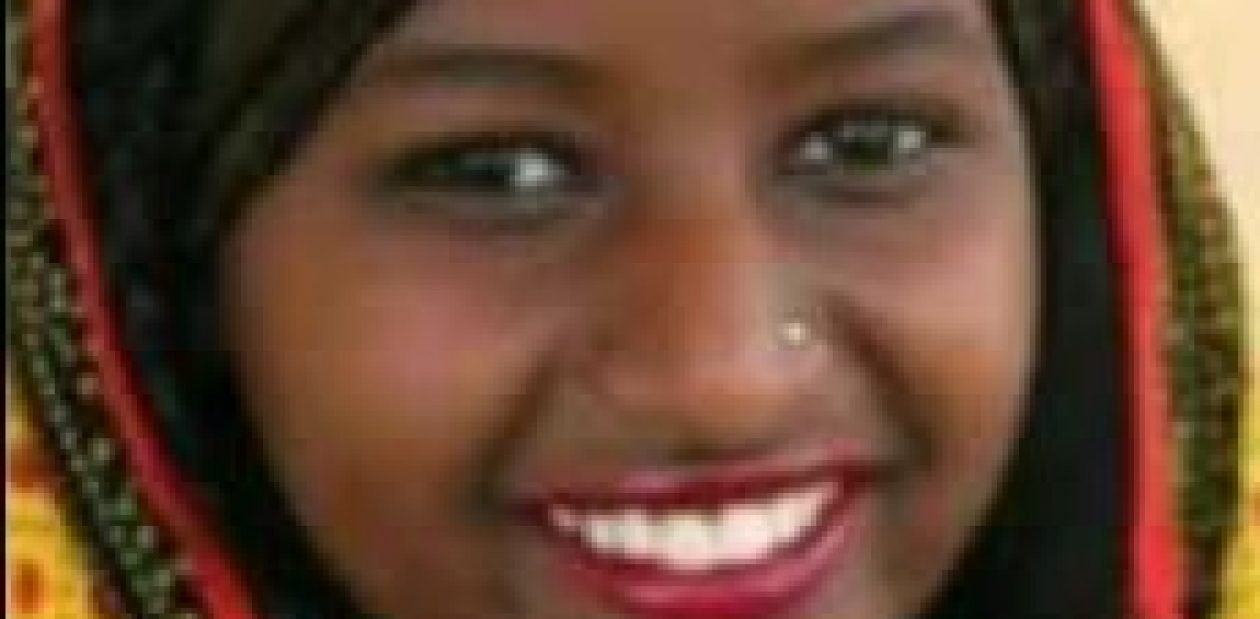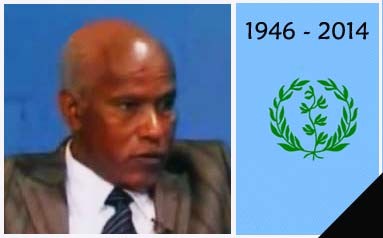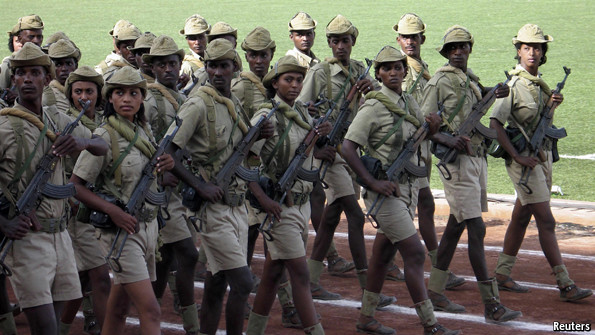GENEVA (31 March 2014) – The United Nations Special Rapporteur on the situation of human rights in Eritrea, Sheila B. Keetharuth, today expressed deep concern about persisting human rights violations in the country in the context of the Eritrean national service.
“National service dominates life in Eritrea entirely,” Ms. Keetharuth said at the end of an official visit to Germany and Switzerland from 17 to 28 March 2014 during which she collected first-hand information from Eritrean refugees and migrants on the human rights situation in Eritrea.
The bulk of what the human rights expert documented reconfirmed her earlier findings: “The main reasons spurring Eritreans to flee their country are linked to the indefinite national service and the constant fear of being targeted,” she said.
Young people are conscripted into the military without any prospect of demobilization. Once they complete military training, they are assigned to various Government sectors, including in the civilian administration.
A conscript who spent almost 14 years in national service told the Special Rapporteur that ‘some families have three or four sons and daughters in the national service. The salary is paltry – too low to cover the prevailing cost of living, let alone support family members, especially children, the elderly or siblings.’

During the interviews with the Special Rapporteur, refugees described in great detail the widespread insecurity that every Eritrean citizen experienced, irrespectively of whether he or she was a national service conscript.
“In addition to regular round-ups by the military, citizens are targeted arbitrarily for reasons that remain mostly unknown to the victims or beyond their control, or at times on charges of ‘plotting to leave the country,’” the independent expert explained.
Severe punishment, including of family members of those who fled, often takes the form of arrest and detention, sometimes for prolonged periods in inhumane conditions and systematic ill-treatment. Other forms of punishment may include the payment of heavy fines, thus depriving entire families of their means of livelihood.
Harassment and intimidation of family members, including elderly parents, is routine.
“Accountability mechanisms do not exist, leaving victims without any access to justice and perpetuating a climate of impunity and fear which extends beyond the borders of the country,” the Special Rapporteur warned.
Ms. Keetharuth also expressed concern about the plight of 276 Eritreans detained in Nagad, Djibouti, with two having reportedly died while in custody. “I reiterate my call on the international community to strengthen efforts to ensure the protection of those fleeing from Eritrea by granting at least temporary refuge or protection in line with their obligations under international refugee and human rights law.”
“I request the Eritrean Government to demonstrate its willingness to deal with its human rights challenges by taking immediate positive steps to reverse the climate of impunity and fear and by inviting me to assess the situation of human rights in the country first hand so as to find lasting solutions,” she stressed.
Eritrea continues to refuse to cooperate with the country mandate created unanimously by the UN Human Rights Council and has not yet granted the Special Rapporteur a visa to visit the country.
“Due to lack of access to Eritrea, I will continue to link up with Eritrean refugees and migrants outside of their home country, as well as with all others concerned by human rights in Eritrea, including those who consider themselves to be victims of alleged human rights violations, human rights defenders and other civil society actors,” Ms. Keetharuth said.
The result of her findings, which will be strictly limited to the situation inside Eritrea, will be reflected in her second report to the Human Rights Council in June 2014.
Sheila B. Keetharuth was appointed as the Special Rapporteur on the human rights situation in Eritrea during the 21st Session of the UN Human Rights Council in September 2012. She took her functions on 1 November 2012. As Special Rapporteur, she is independent from any government or organization and serves in her individual capacity. A lawyer from Mauritius, she has extensive experience in monitoring and documenting human rights violations, advocacy, training and litigation in human rights in Africa.
Learn more, log on to:http://www.ohchr.org/EN/HRBodies/SP/CountriesMandates/ER/Pages/SREritrea.aspx

















